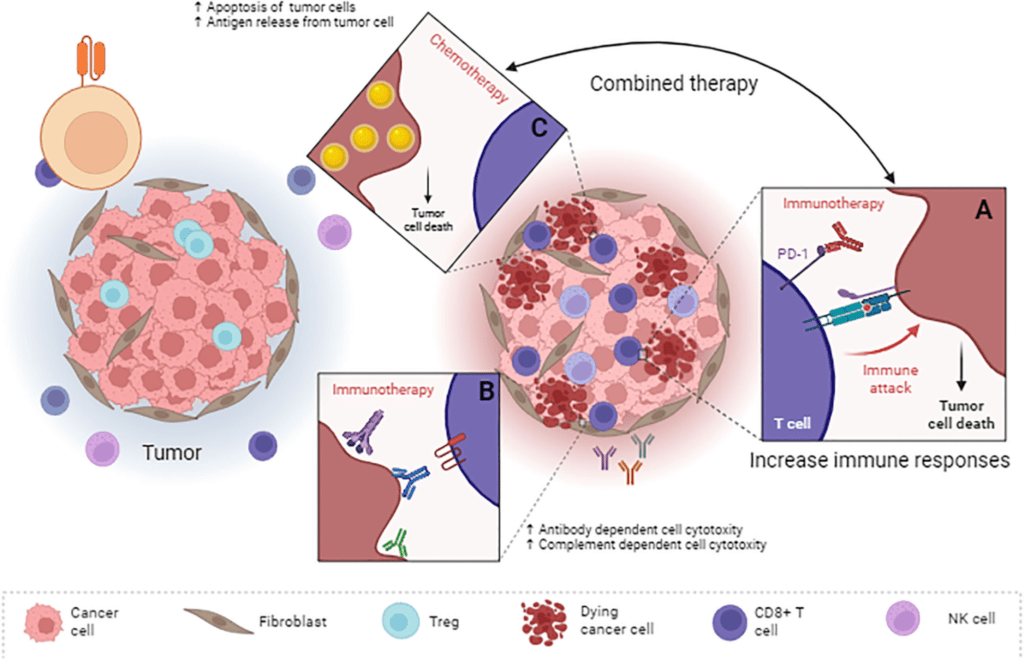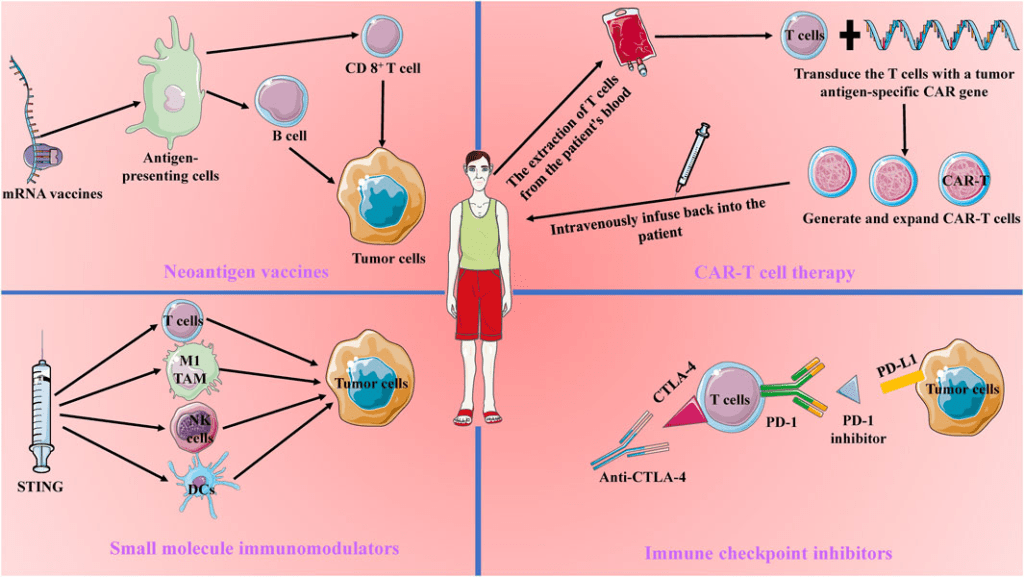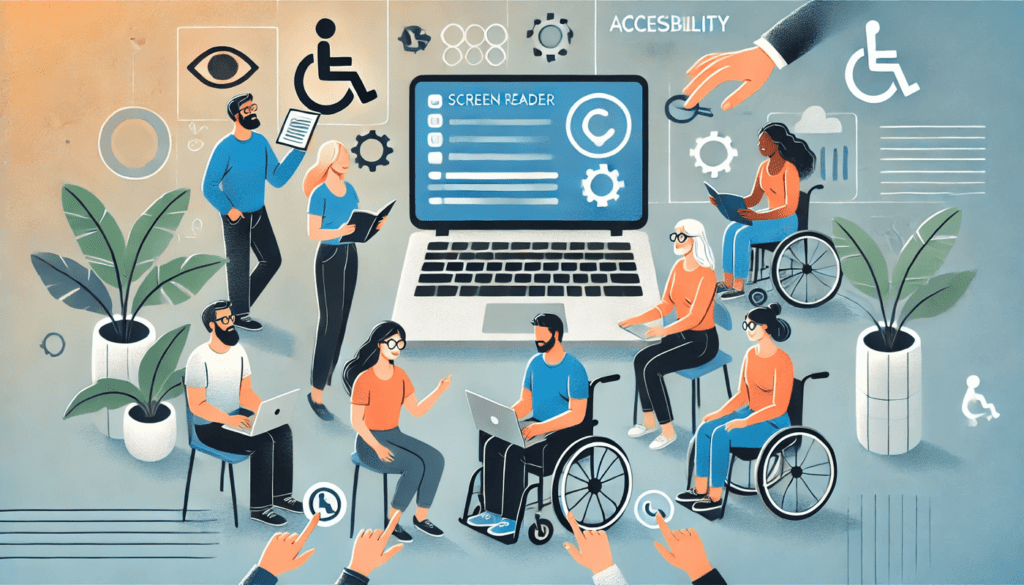Introduction:
Jus’Onco Cancer Clinic stands as a medical facility committed to delivering specialized oncology consultation and cancer therapy services that focus on advanced treatment approaches. The medical center provides accessible cancer treatment costs combined with individualized cancer treatment.
1. Learning the Fundamentals: What is Chemo- and Immunotherapy?
The way of dealing with cancer has changed a lot in the recent past. Two of the most popular and the most discussed treatments nowadays are chemotherapy and immunotherapy. Although both of them are used to treat cancer, they approach the disease in wholly different ways.
Chemotherapy involves strong medications that
destroy fast-growing cells including cancerous and healthy ones. Immunotherapy, however, is an active material that aids in the fight against cancer cells by the assistance of the body’s immune system.
The mechanism of these treatments is very important to patients and caregivers who have to make important decisions regarding care. Every technique has its advantages, constraints, and best applications.
Get Affordable chemotherapy treatment in Chennai from the Jus’Onco Clinic.
In this blog we shall learn how chemotherapy and immunotherapy differ, how well they work and what problems are caused by their application, in addition to what the future holds regarding cancer treatment.

Curious about how these treatments differ in real life? Schedule a session with your oncologist to understand which approach suits your diagnosis.
2. The Role of Chemotherapy:
Chemotherapy, also known as just chemo, is a traditional method of cancer treatment that has been applied since the 1940s. This is through the use of cytotoxic drugs that attack cells that grow quickly this is the nature of cancer cells. Nevertheless, since several healthy cells divide rapidly (such as the ones in the hair follicles, gastrointestinal tract, and bone marrow), chemotherapy may damage them as well.
Chemotherapy is administered by using the intravenous injections, orally or directly to the area of concern. It is usually administered on a cyclical basis so that the body can have time to rest between the sessions. Although chemo is usually capable of reducing tumors and hindering the development of cancer, its non-specificity causes various side effects.
Other side effects are usually as follows:
- Fatigue
- Loss of hair
- Vomiting and nausea
- Depressed immunity
- Cold sores in the mouth
Nonetheless, chemotherapy has been considered as a mainstay of cancer treatment due to its handling of cancer on an aggressive basis.

3. Mechanism of Immunotherapy: Enhancing the Body’s Defenses
The advent of immunotherapy is a more long-term development in the filed of cancer treatment and a step in the direction of precision medicine. Immunotherapy targets cancer cells by inducing the body’s immune system to recognize and kill them as opposed to shooting cancer cells directly. This may be done through a number of ways like:
- Checkpoint inhibitors: This type of drug removes the brakes from the immune cells to enable them to fight the cancer.
- CAR T- cell therapy: This therapy is where the immune cells of a patient are changed in a laboratory setting to act more aggressively against cancer.
- Monoclonal antibodies: Synthetic molecules produced in the laboratory that bind to cancer cells in order to destroy them.
- Vaccines against cancer: Assist the immune system to identify cancerous cells.
Since immunotherapy is more specific, it tend to cause fewer side effects than chemotherapy. Nonetheless it does not work on everyone. It is effective to a significant extent depending on the kind of the disease, the genetic constitution of the disease in relation to the cancer, and also the overall health status of the immune system of the patient involved.
Side effects that are common in immunotherapy are:
- Rashes on the skin
- Fatigue
- Flu like symptoms
- Autoimmune reactions (rare)

4. There is a question of comparative effectiveness or which treatment is better?
The effectiveness of immunotherapy may differ extensively from that of chemotherapy depending on cancer type and stage. This is a breakdown:
Chemotherapy is more effective in the case of fast growing tumor like some leukemia and lymphomas. It is effective in shrinking tumors fast and can either be administered independently or even combined with other methods like surgery and radiation.
It has been observed that immunotherapy has achieved an incredible success in treating such cancers as melanoma, non-small cell lung cancer, and some kidney cancers. It is even recorded that some patients have been in long-term remission which was not common when conventional chemo was used alone.
Nevertheless, immunotherapy is not helpful to everyone. Some patients experience a spectacular response, but others do not respond at all. Scientists are yet to figure out the reason.
Book a Free Consultation and get Chemotherapy treatment cost in chennai.
In summary:
- Chemotherapy can produce faster results at greater toxicity.
• Immunotherapy could bring long-term results with less severe side effects- however, this can be achieved only in the patients who are open to immunotherapy.

5. Patients have a lot to look forward to when it comes to side effects.
The side effects of both the treatments are different and varying in severity.
Side effects of Chemotherapy:
Short intense but short-term
- Comprises hair fall, nausea, tiredness, and infection chance
- May influence the quality of life during treatment
Side effects of immunotherapy:
- More bearable and less severe in general
- Incorporates inflammation and skin problems, or flu-like conditions
There are rare but severe autoimmune reactions that may occur
In the case of many patients, the decision might be made between the necessity of therapy and the probable load of adverse effects. The doctors in certain situations can start with chemotherapy and then introduce immunotherapy.

6. Between cost and accessibility which is more practical?:
Chemotherapy is common in treatment and commonly financially reimbursed by insurance. Since the technology has been in use over the years, there are well developed standards and infrastructures on how the technology is used. It is still expensive though, particularly in longer- term treatments but it is cheaper when compared to the newly available alternatives.
Immunotherapy is promising but it is usually quite expensive. Many of the immunotherapy drugs are newly approved medicines and not covered on a full-pay basis by insurance. Furthermore, excessive costs may be imposed by the necessity to undertake genetic examination or develop individual treatment plans.
Chemotherapy would be the more feasible option in case of a patient who is not covered by a comprehensive insurance policy. Nevertheless, immunotherapy is gradually becoming more available as multifaceted financial aid programs and clinical trials become more common.

7. Personalized Treatment: Why “Better” Depends on the Patient:
There is no universal answer to which treatment is better—because every patient is unique. Factors that influence the best choice include:
- Type and stage of cancer
- Patient’s age and overall health
- Genetic mutations or biomarkers in the tumor
- Prior treatments and how the body responded
Doctors use a personalized approach to treatment, often running diagnostic tests to determine whether a patient is likely to benefit from immunotherapy. In some cases, the best outcomes are achieved by combining both therapies, leveraging the speed of chemo and the lasting power of immunotherapy.

8. The Future of Cancer Treatment: Combining Therapies:
The future of oncology is moving toward combination therapies—using chemotherapy and immunotherapy together. This approach is already being used in certain cancers, such as non-small cell lung cancer, where patients receive both treatments to maximize their chances of survival.
This strategy allows:
- Chemotherapy to reduce tumor size quickly
- Immunotherapy to maintain long-term immune response
Ongoing research is focused on how to combine these therapies most effectively, reduce side effects, and personalize treatment plans for individual patients.
In addition, newer forms of immunotherapy, such as tumor-infiltrating lymphocyte (TIL) therapy and oncolytic virus therapy, are showing promise and may further change the treatment landscape.

Conclusion
So, which is more effective—chemotherapy or immunotherapy? The answer isn’t simple. Chemotherapy remains a powerful and often necessary weapon against many types of cancer, especially in early treatment stages or aggressive cancers. Immunotherapy treatment in chennai, on the other hand, represents a revolutionary shift in how we approach cancer care, offering hope for long-term remission with fewer side effects in certain patients.
Ultimately, the choice between chemotherapy and immunotherapy depends on individual factors, including the type of cancer, its stage, and the patient’s overall health. The best outcomes often come from a collaborative, personalized treatment plan developed by a team of specialists.
As science advances, so does our ability to treat cancer more effectively and with greater precision. For patients, staying informed and working closely with their medical team is key to making the best treatment decision.
Here at JusOnco Cancer Clinic we are convinced that every patient should receive high quality cancer treatment with no heavy expenses. Our oncology team is highly qualified and has the experience it takes to fully treat you whether through surgery, chemotherapy, radiation therapy, immunotherapy or even other advanced therapies such as targeted therapy and cryoablation at a price that suits both your body and your pocket.
Wondering if surgery is right for your cancer type? Ask your doctor how surgery can help diagnose, treat, or relieve symptoms.
